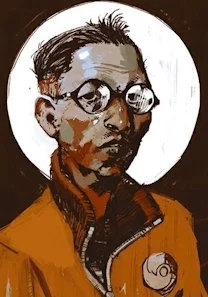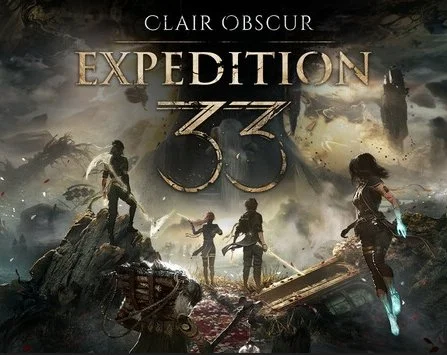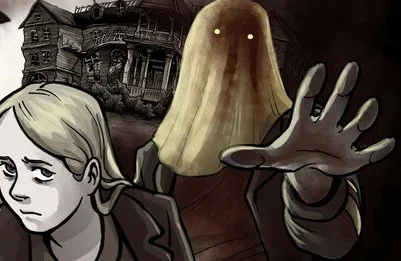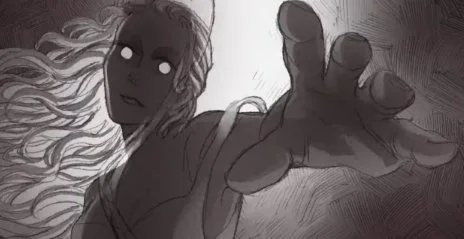Broken Brilliance and the Auteur Game: Expectation, Authenticity, and Cult Fandom
In an era of polished blockbusters and carefully managed franchises, a game like Wanted: Dead feels almost anomalous. It arrives with the pedigree of ex Team Ninja developers, carries the expectations attached to a full price release, and presents itself as a stylish cyberpunk action title. Instead of fulfilling those expectations, it delivers something jagged, chaotic, and unmistakably strange. Its story evaporates into thin air, its tone ricochets without warning, and its mechanics swing between satisfaction and frustration. By conventional standards, these qualities should doom a game to obscurity. Instead, Wanted: Dead has cultivated a growing cult of players who describe it with a mix of bafflement, affection, and fascination.
The puzzle is simple to state yet difficult to answer. Why do some flawed games develop long-lasting communities and critical reevaluation while others are dismissed and forgotten? Why does a game that violates mainstream expectations become a symbol of authenticity or even artistic intention for a devoted minority? The answer lies in a convergence of psychological factors: expectation violation, perceived sincerity, auteur interpretation, and subcultural identity. Together, these influence how players interpret a work that is technically uneven but creatively distinctive. Wanted: Dead, much like Killer7, Deadly Premonition, and Devil’s Third before it, demonstrates how a game can fail in traditional terms yet succeed as a form of broken brilliance.
When Expectations Collide with Reality
To understand the reception of Wanted: Dead, we must begin with expectations. Games do not arrive in a vacuum. Players bring assumptions shaped by marketing, price, developer reputation, and genre conventions. When a project involves veterans of Ninja Gaiden, many expect tight combat, responsive controls, and a serious story. When a game launches at a premium price, players assume a certain level of production value. When a cyberpunk aesthetic is advertised, audiences anticipate cohesive worldbuilding.
Wanted: Dead violates each of these assumptions. Its combat can feel uneven, its presentation resembles early 2000s B tier design, and its story often collapses into disconnected fragments. Difficulty spikes feel sudden rather than carefully tuned, and character dialogue frequently sounds improvised or unpolished. These qualities clash with what players imagine the game should be.
Expectation violation theory explains the emotional reactions that follow. When a work contradicts expectations, players respond more intensely than they would to a predictable experience. The response can be negative frustration or it can shift into curiosity and admiration. The magnitude of the expectation gap creates a stronger emotional imprint. This helps explain why Wanted: Dead is memorable even for those who dislike it. The game refuses to be neutral. It either disappoints or captivates.
For the players who end up loving it, the expectation violation becomes a catalyst for reinterpretation. They begin searching for intent, meaning, or personality behind the roughness. Once that search starts, the flaws transform from mistakes into expressions of identity.
The Auteur Game: Messy but Personal
Auteur theory, originally applied to film, argues that a director can imprint a work with such strong personal style that the film becomes an extension of the creator’s vision regardless of technical quality. In games, auteurs like Suda51, Swery, and Hideo Kojima have developed reputations for creating works that are bold, idiosyncratic, and sometimes incoherent. Their games often have noticeable mechanical or structural flaws, yet players perceive these flaws as part of the creator’s distinctive voice.
Wanted: Dead functions like an auteur game even without a single famous creative personality attached. Its style is unmistakably deliberate. It blends gritty violence with slapstick humor, live action FMV with anime sequences, ramen documentaries with tragic android romances. No two scenes feel like they were made for the same game, yet they all reflect a certain taste and confidence. This mixture resembles a collage of influences drawn from John Woo action films, sixth generation console aesthetics, Japanese television, and retro arcade games. The consistency is not in tone or texture but in the willingness to ignore coherence in service of creative impulse.
Players who enjoy auteur driven games recognize this pattern. They sense intention behind the chaos. The lack of polish becomes evidence that the creators prioritized expression over refinement. The game feels handcrafted rather than committee designed. The eccentricities feel unfiltered. This perception does not excuse every flaw, but it shifts the mental framing from technical failure to personal style. The game becomes not an unsuccessful attempt to emulate polished titles, but a successful attempt to create something unusual.
Even small decisions reinforce this interpretation. The inclusion of a full playable arcade shooter in the headquarters, the use of awkwardly delivered dialogue, and the choice to combine multiple visual styles communicate that the team was not interested in convention. They wanted to make something that reflected their collective taste, even if it confused players. Once a player interprets the result as expressive rather than incompetent, the flaws gain meaning.
Authenticity and the Appeal of Rough Edges
One of the strongest psychological forces shaping player attachment is the pursuit of authenticity. Modern games often feel smooth, polished, and focus tested. They remove friction and unpredictability in order to appeal to the widest possible audience. Many players appreciate this refinement, but others feel that something has been lost. When every game follows similar design rules, the medium can feel safe and predictable.
Wanted: Dead occupies the opposite space. It feels like a throwback to a time when mid budget developers created risky projects that mixed strange ideas with uneven execution. The rough edges signal that the game is not trying to please everyone. This kind of authenticity has strong appeal for players who seek novelty or who value artistic sincerity over technical performance.
Authenticity in this context does not mean realism or accuracy. It means that the game appears unfiltered and undiluted. It behaves like an artifact of personal passion. When a game feels authentic, players forgive or even celebrate imperfections because they believe those imperfections come from the same source as the creativity. The jank is part of the identity.
This attitude mirrors the appreciation of punk music, outsider art, and low budget cinema. In these fields, flaws are not simply tolerated. They are a sign of independence. They reveal the absence of corporate smoothing. Wanted: Dead taps into this sensibility. It presents itself as a game made by people who cared enough to include everything they found interesting, regardless of conventional wisdom. For players who value authenticity, this is more appealing than a technically competent but personality free experience.
Cult Fandom: Identity Through Anti Mainstream Taste
Once a game is interpreted as authentic or auteur driven, it becomes fertile ground for cult fandom. Cult communities thrive on works that are misunderstood by the mainstream. Their members find identity in appreciating something that others overlook or dismiss. This dynamic appears repeatedly in videogames. Titles like Deadly Premonition gained their reputation not through broad acceptance but through pockets of dedicated fans who championed the game despite its flaws.
Wanted: Dead follows the same trajectory. Early reviewers were divided, and many mainstream audiences were confused or even irritated. This created exactly the type of environment where cult fandom flourishes. Fans begin to share clips of bizarre scenes, quote awkward dialogue, and turn the jank into in jokes. These shared references become markers of group membership. Liking the game becomes a social signal that one has a specific taste for eccentric, rule breaking media.
This identity forming process reinforces positive reinterpretations of the game. Once a community celebrates the flaws, those flaws become part of the pleasure. The roughness stops feeling like a mistake and starts feeling like a tradition. This is how reception flips over time. What begins as a divisive release evolves into a cherished oddity.
Simply Put: The Art of Broken Brilliance
Wanted: Dead illustrates how a game can succeed by failing. It violates expectations, leans into eccentricity, and refuses to follow conventional design rules. These qualities alienate some players, but they attract others who interpret the roughness as authenticity or personal vision. Once that interpretation takes hold, flaws become evidence of character.
This dynamic echoes a broader pattern in media. Works that take risks often polarize audiences. Some see mess. Others see brilliance. The most interesting creations often occupy the space between technical failure and artistic ambition. Wanted: Dead fits comfortably in that space. It reminds us that games do not need to be perfect to be meaningful. They only need to be distinctive enough for players to find themselves in the cracks.
In the end, the appeal of Wanted: Dead is not found in polish or precision. It is found in the unmistakable sense that the game was made with a mixture of passion, recklessness, and sincerity. These qualities create a form of broken brilliance that may never appeal to the majority, but will always speak deeply to those who value creative freedom over conformity. The game’s cult following is not an accident. It is the natural result of a work that dared to be strange, personal, and defiantly imperfect.
Sources:
Wanted: Dead | Wanted: Dead Wiki | Fandom
Review: Devil's Third (Wii U) - Nintendojo Nintendojo
Wanted: Dead - Review — Analog Stick Gaming
Wanted: Dead Review - An Off-Kilter Killer
Wanted: Dead - Ninja Whyden? (Review)
Wanted: Dead Is 2023's Jankiest Game, And I Love It - Kotaku









